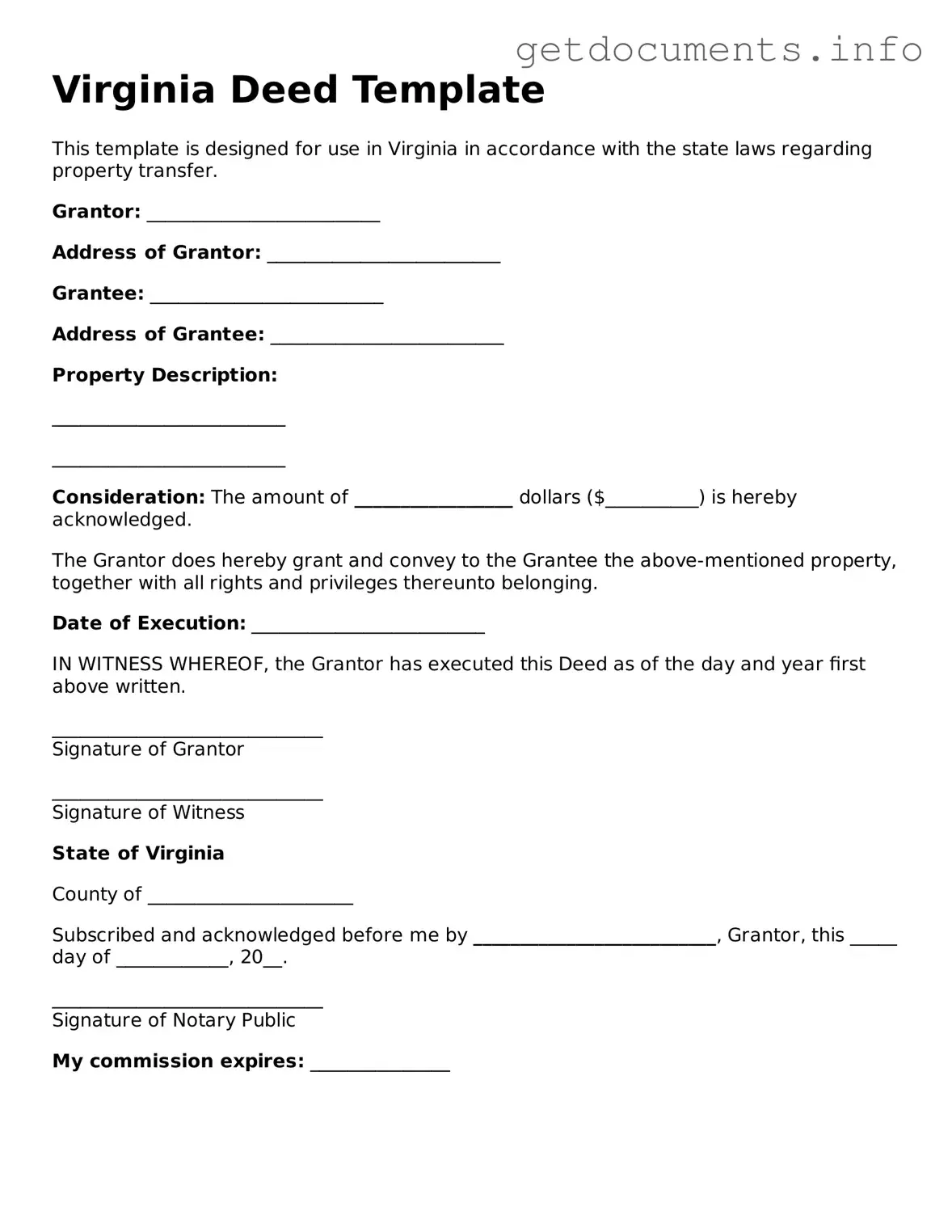Free Deed Template for Virginia
A Virginia Deed form is a legal document used to transfer ownership of real property from one party to another. This form is essential for ensuring that the transfer is recognized and recorded by the appropriate authorities. For those looking to navigate the process of property transfer, filling out the Virginia Deed form is a crucial step—click the button below to get started.
Access Deed Editor

Free Deed Template for Virginia
Access Deed Editor
Got places to be? Complete the form fast
Fill out Deed online and avoid printing or scanning.
Access Deed Editor
or
⇩ PDF File
